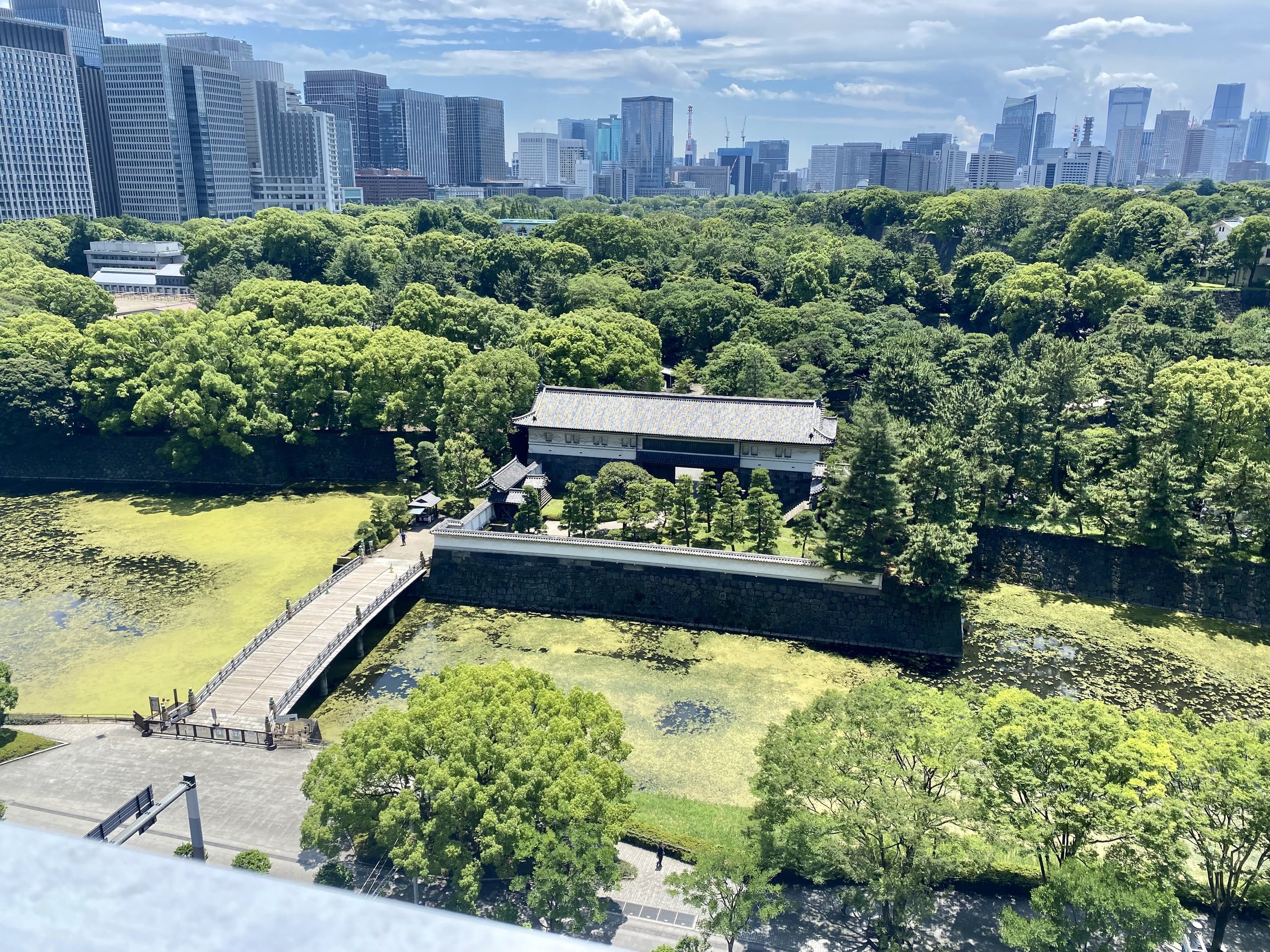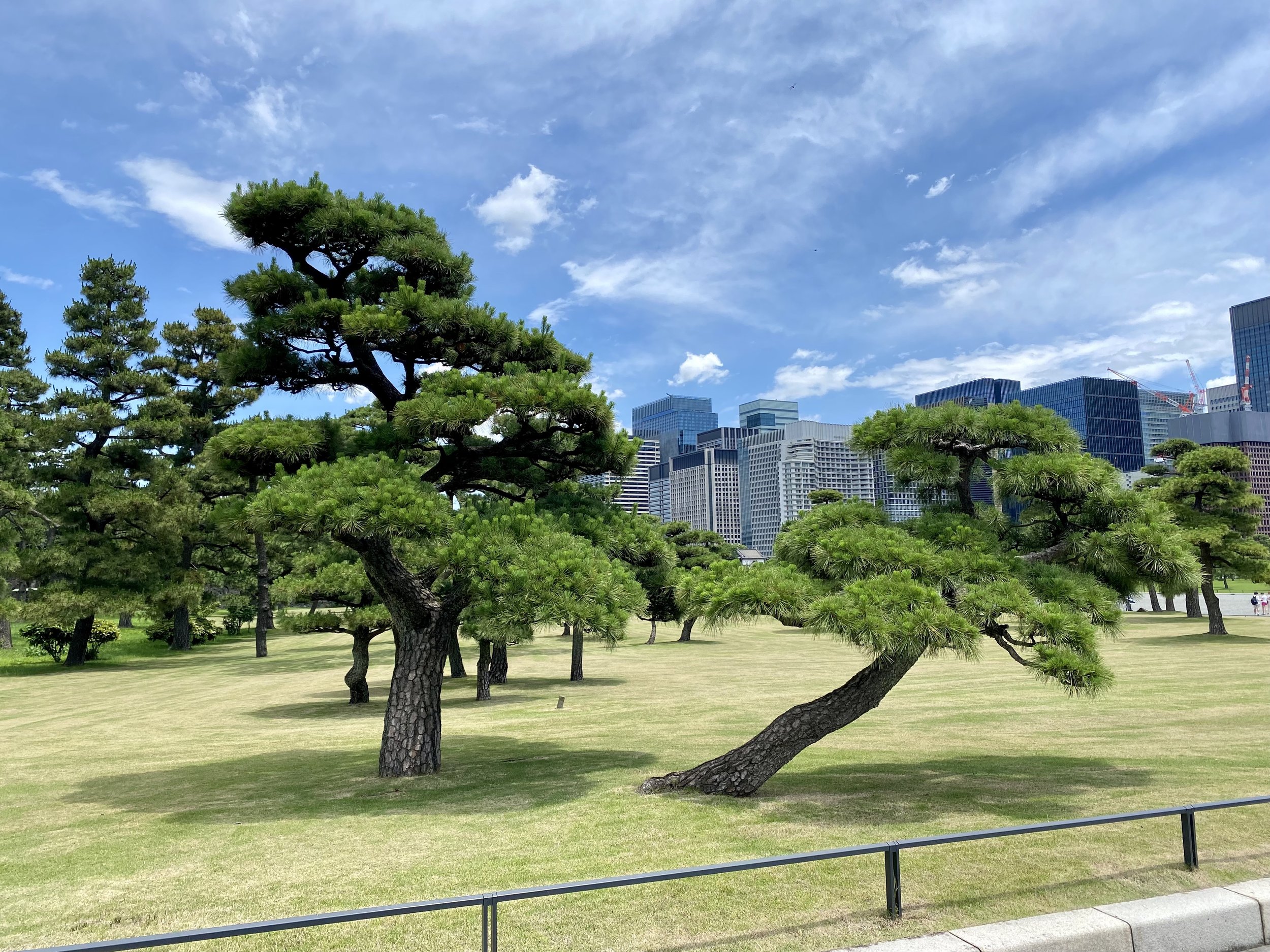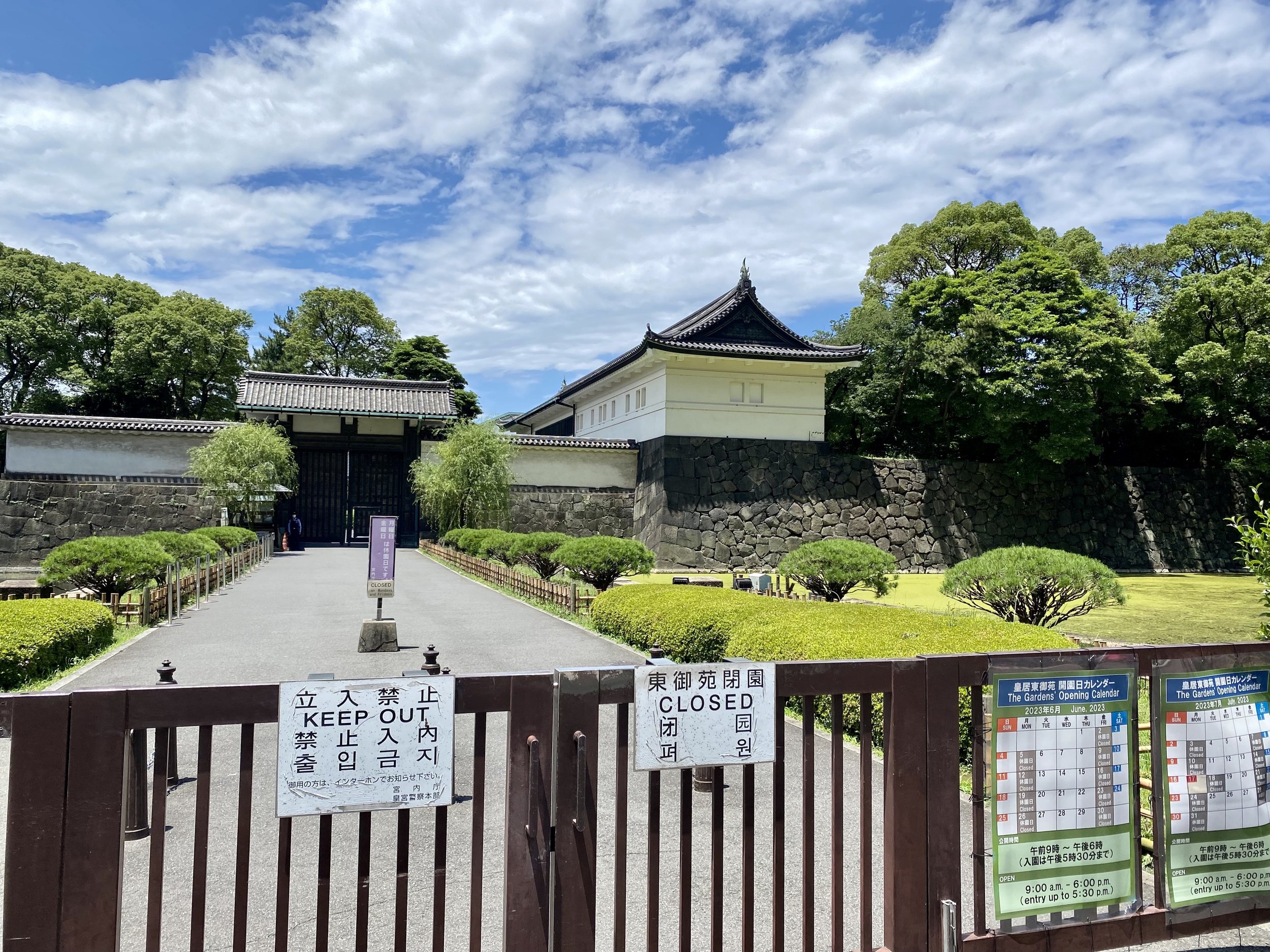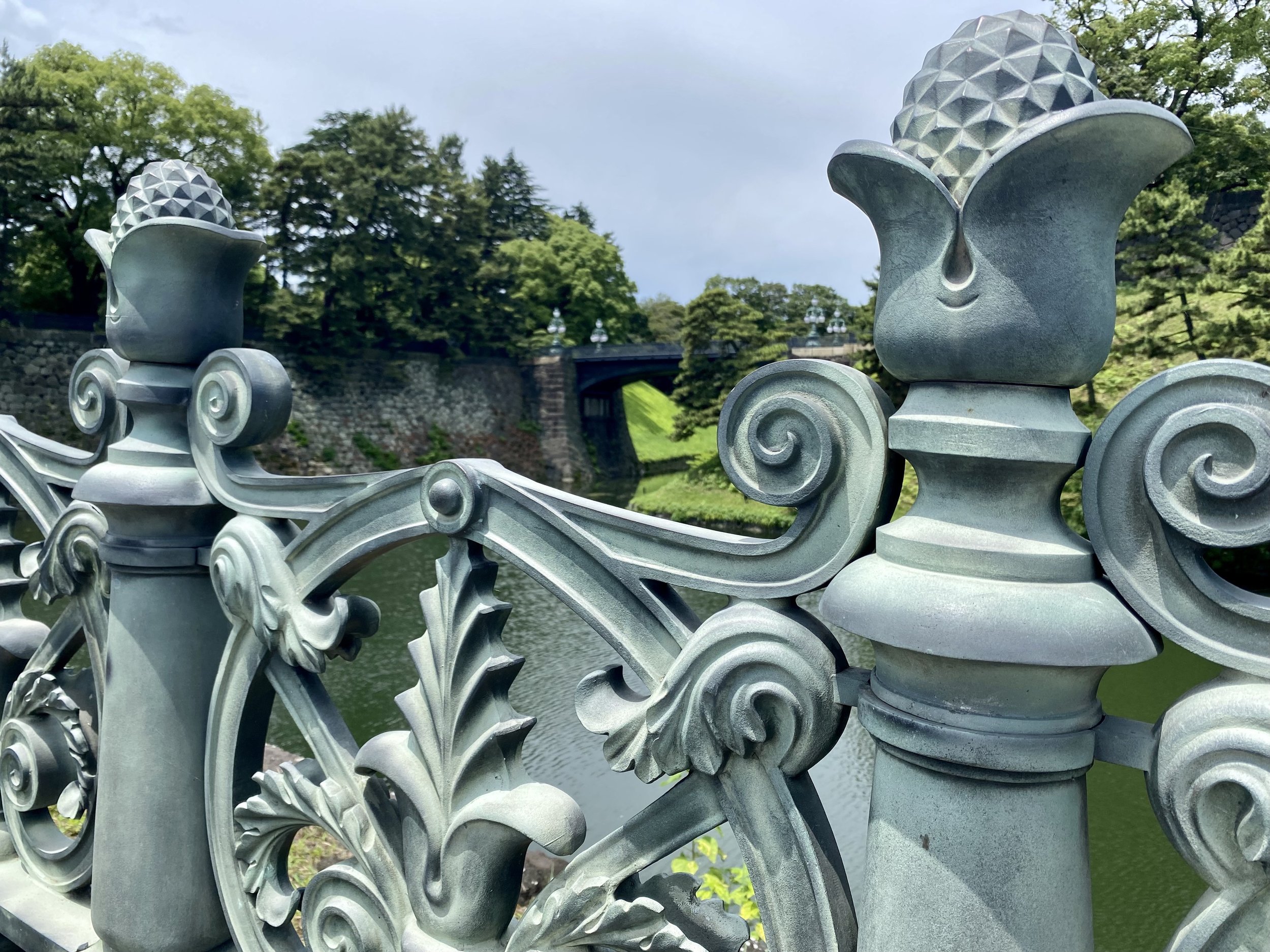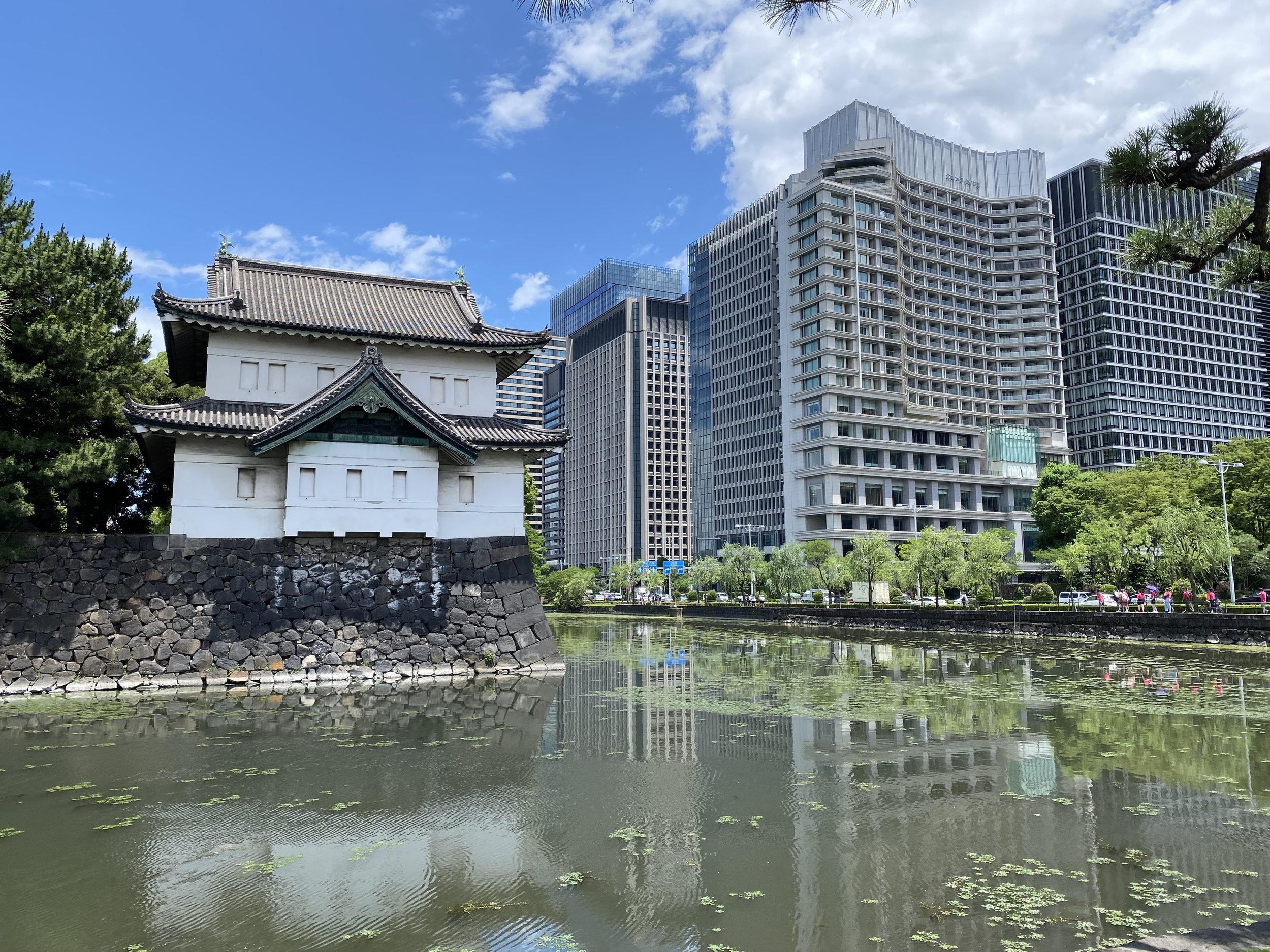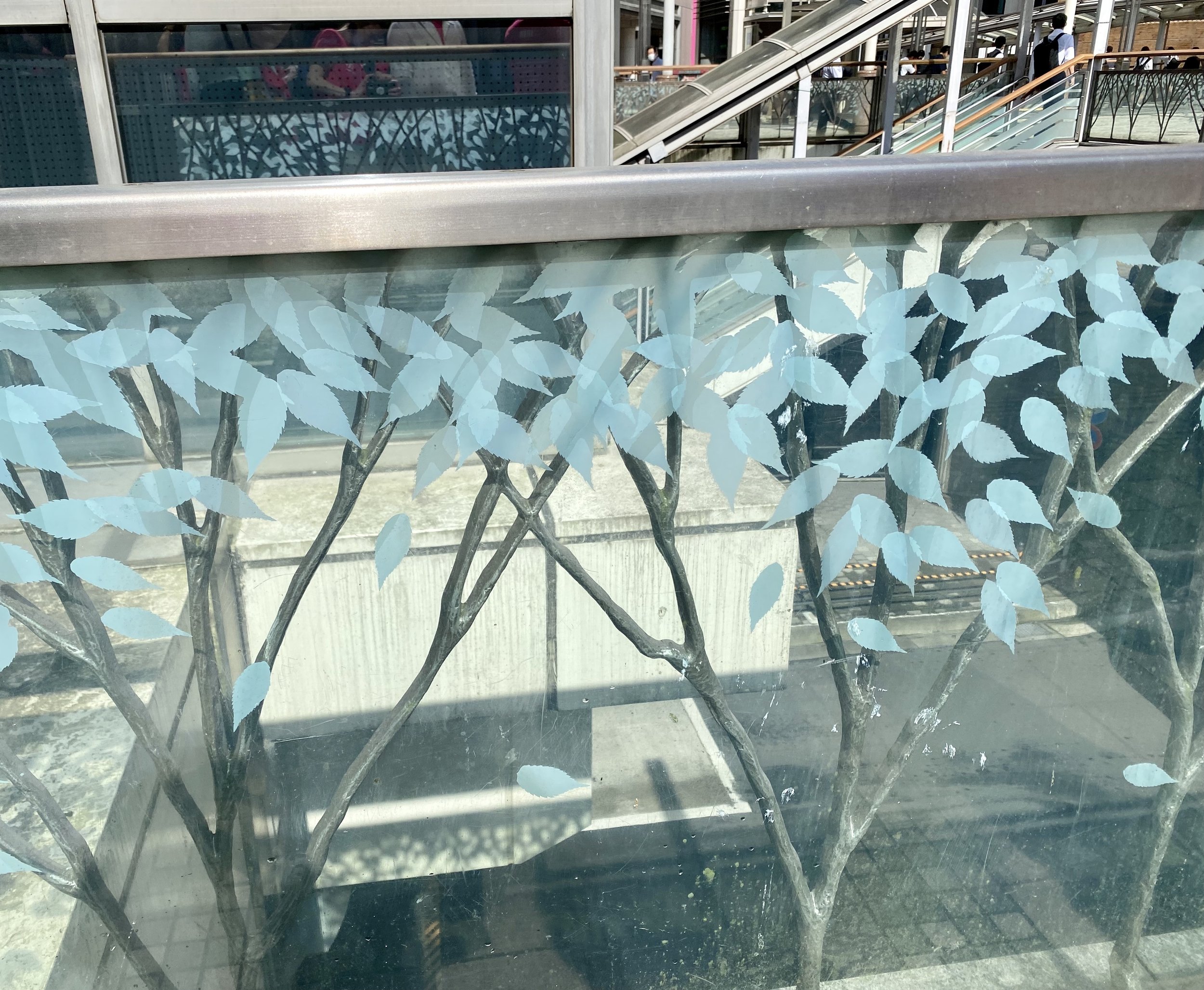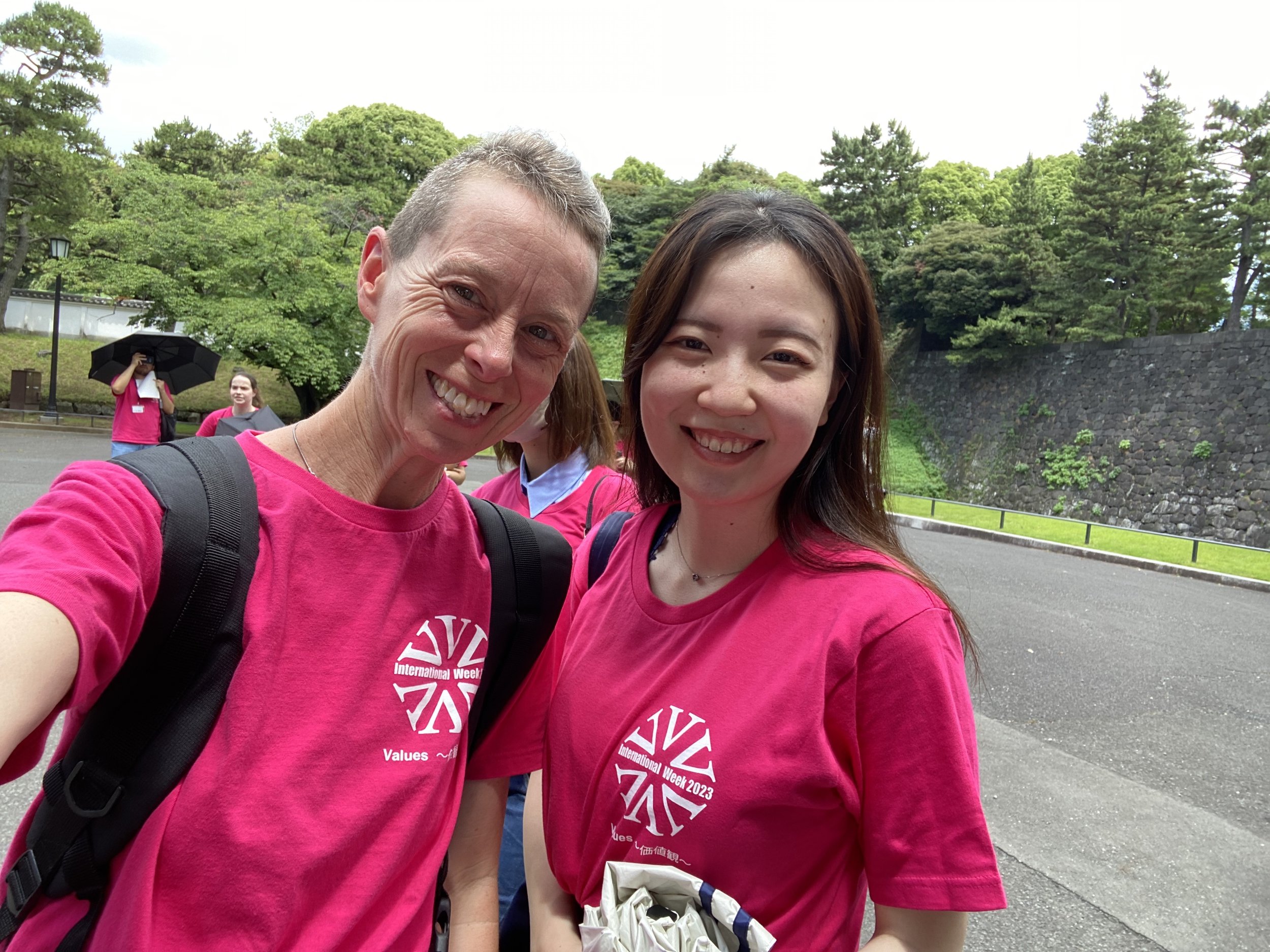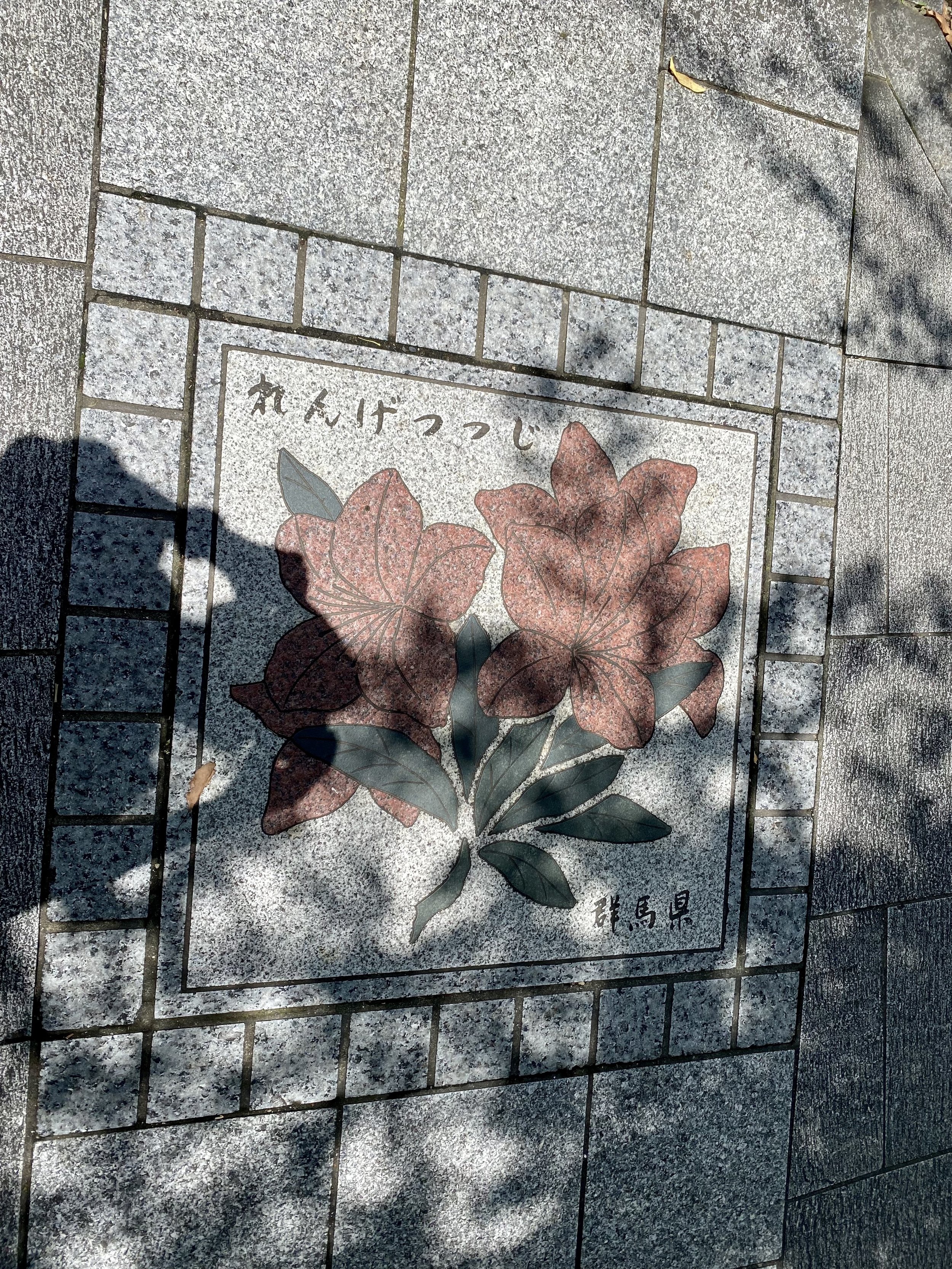June 16 part 1: Lessons in Planning
June 16 part 1: Lessons in Planning
The schedule read “Tokyo Sightseeing” and then an afternoon / evening off. We donned our pink t-shirts and met in the lobby to head off in small groups. We were not told anything other than the start time and to wear our t-shirts. It was already hot when we gathered at 8:15 and many of the students rolled out of bed and skipped breakfast.
We spent two hours navigating the train system with a lot of being asked to step to the side and wait. So much waiting…with no clear sense of what we were waiting for. Finally, we made our way out of the metro and onto the grounds of the Imperial Palace where we gathered with the rest of the pink shirts at one of the gates. By this time, many of the members of the group were already struggling. After a brief presentation about the Palace, we started walking the grounds. As the day got hotter and people became increasingly dehydrated and underfueled, things got ugly.
We walked through the grounds for some time - getting increasingly spread out based upon the way folks were feeling. While it is possible that the Technos student leaders knew where everyone was, it seemed that it would have been very possible for someone to get left behind. There was limited seeming awareness that people might need attention or care and no adjustments were made along the way in response to the heat. After maybe an hour of walking the grounds, we were led to a building with a lovely rooftop view of the Imperial Palace grounds and city of Tokyo behind. I was rather on my own at that moment, though following behind a few other International Week pink shirts. I followed them up the stairs and then into a convenience store and picked up a water. I had no idea what was going on or where I was supposed to be, nor any idea how to reconnect with my group. At some point, a Technos student came in and told those of us in the store we needed to follow them and we headed to an elevator to the roof.
Moments after arriving and taking a photo with a colleague, a student ran over to ask me if I knew that one of my students was sick in the bathroom. I sent my student some texts, told a colleague where I was going, and headed downstairs to stand outside of the bathroom to find out how he was. The next hour or so was spent sending in male faculty members to try and check on him because I was not able to go into the bathroom myself. After many consultations among ourselves, the student, and some of the Technos leadership, we decided that the best option was to send him back on the train to the hotel to rest.
I had to send a male colleague with him…because our gendered bathroom world meant that I was of limited use if he were to get sick again. This felt rather like failure.
After that, myself and another colleague were found by two Technos students and led back to the other colleague’s group. After more photos in front of Tokyo Station (when many folks looked like they were ready to pass out from a combo of not eating, having fluids, heat, and a long walk that seemed without clear direction), the International Week guests finally told the students that we were going to go our separate ways and get some lunch on our own. (This decision was at odds with the desire to support the work of the Japanese students who had planned that each group would have a meal at a ramen place together - but the restaurant we slowly found our way to had a very long wait. The decision was not easy to make, but I believe it was the right one.)
I went into this day telling myself to be as patient as possible - one of the main purposes of the International Week program is to train Technos students to be leaders. As a program that has been on hiatus for 4 years during the pandemic, they are basically at a reset point - there is essentially no institutional memory of how this program functions beyond the amazing leadership of Matt Rollo, the longstanding director of the program. But when plans were not adapted to take the circumstances of the day and the people involved into account and people’s health was on the line, I became incredibly frustrated. So I spent some time thinking about the lessons I want to take away from this experience:
Group planning is hard and requires both laying out a plan and then adjusting as things come up.
Most people - especially those from marginalized groups - are inclined to go along to get along and will do their best to meet expectations, even when those expectations are bad for their well-being. It is up to those of us leading activities / programs to ensure that we pay careful attention to those in our trust and that we check in with them as to how they are doing. No matter how much we want to get through our programming, we may need to adjust if our plans were too ambitions.
Not everyone is able to keep up. We need to make sure we aren’t leaving folks behind and have plans for how to keep people safe and engaged.
Always try to imagine yourself from the perspective of someone who is outside of the group to which you belong. What would you want to know in order to reduce anxiety heading into an event? (for ex. The names of the trains you will be taking, where you are going, who to call in event of an emergency, etc.)
Take care of people’s basic needs.

